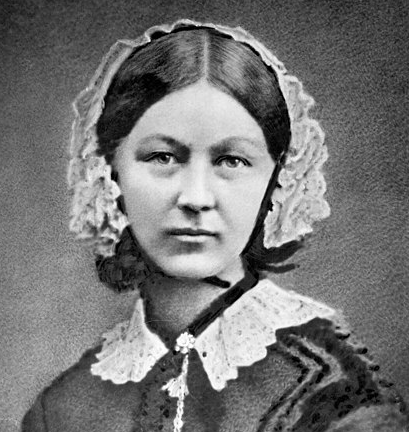Florence Nightingale’s Biography & Greatest Accomplishments
Florence Nightingale was an English-born nurse who is generally revered as the founder of modern nursing. A diligent humanitarian activist, statistician and social reformer, Nightingale achieved greatness by selflessly tending to injured soldiers during the Crimean War (1853-1856). Inspired from an early age, she was a strong humanitarian who devoted bulk of her life to the service of people in need.
Nightingale’s humanitarian efforts saw her appeal for hunger relief in India as well as advocated healthcare for everyone in her country. Her commitment to patient care and unbridled compassion are just some of the reasons why she remains remembered to this day.
What else was this renowned nurse known for? Discover 10 achievements of Florence Nightingale, the Mother of Nursing and one of Britain’s most iconic personalities of the Victorian era.

Florence Nightingale – Biography and Achievements
Florence Nightingale: Fast Facts
Birthday: May 12, 1820
Place of birth: Florence, Grand Duchy of Tuscany, Italy
Died: August 13, 1910
Place of death: Mayfair, London, England, United Kingdom
Cause of death: Heart failure
Father: William Edward Nightingalae (1794 – 1874)
Mother: Frances (“Fanny”) Nightingale (1788 – 1880)
Siblings: Frances Parthenope
Specialty: Sanitation, Statistics, Hospital hygiene
Notable Awards: Royal Red Cross (1883), St John (LGSTJ) (1904), Order of Merit (1907)
Best known for: Nursing injured soldiers during the Crimean War
Institutions: Selimiye Barracks, Scutari (in present day Turkey), King’s College London
Nickname: “The Lady with the Lamp”
Florence Nightingale’s calling to the humanitarian profession
Born in Florence, Tuscany, Italy, Florence Nightingale grew up in an affluent and well-networked English family. Contrary to what many people would have done, Florence chose to pursue humanitarian causes.
It’s been said that she was partly inspired on to that part by some charitable works of her parents – Frances Nightingale and William Edward Nightingale. For example, her paternal grandfather, William Smith, was a well-known Unitarian and abolitionist. It’s also been said that Florence believed her path to humanitarian causes came as a result of receiving calls from God at the age of 17.
In spite of her parents’ (mostly from her mother) resistance to her choice of profession, Florence Nightingale remained resolute as she pursued a career choice in nursing. She was well into her 30s before she made it known to her parents that she would stick with nursing as a career. Then and there, she knew she was bound to devote the rest of her life to service of people in need.
Nightingale shunned her sister’s and mother’s advice for her to live the life that was expected of any affluent English woman. She certainly could have done so as she was described as extremely attractive and graceful.

In her diary while visiting Egypt in the winter of 1850
Her first nursing gig
The early 1850s saw Florence Nightingale spend a couple of years abroad, touring places in Europe and Egypt. Around that same period, Nightingale took a six-month training course at Kaiserswerth-am-Rhein in Germany. That training broadened her knowledge in care giving and the setting up of humanitarian projects.
Kind courtesy to the very generous stipends given to her by her father, Nightingale did not have much difficulty following her path as a superintendent at the Institute for the Care of Sick Gentlewomen in Upper Harley Street, London.
























